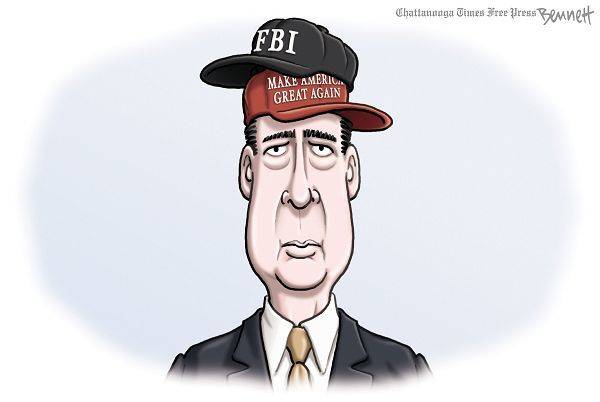During the 2016 presidential campaign, Republican nominee Donald Trump urged a foreign power, Russia, to interfere in the American election in order to undermine his Democratic rival Hillary Clinton. Russia complied. The American intelligence community, including the CIA and FBI, has reached a “strong consensus” that the Russians interfered with the presidential election in order to help Donald Trump win.
It has also been reported that Russian President Vladimir Putin personally directed this espionage operation. So serious was Russian interference in the American presidential election that the Obama administration warned Putin that it was tantamount to “armed conflict.”
Republican leaders in Congress were briefed on Russia’s interference in the presidential election and how it was targeted at elevating Trump and hurting Clinton. Senate Majority Leader Mitch McConnell and other congressional Republicans chose to block any public discussion of these findings. In what could be construed as a quid pro quo, McConnell’s wife, Elaine Chao, has been selected by President-elect Trump for a Cabinet position in his administration.
Donald Trump’s flirtations with Russia and Vladimir Putin are part of a broader pattern of reckless and irresponsible behavior. Trump has numerous conflicts of financial interest that would appear to violate the emoluments clause of the Constitution. His sons, Eric and Donald Jr., were involved in a scheme (since withdrawn) that looked a lot like an attempt to sell access to his administration through million-dollar “charity” donations.
Trump has threatened to violate the First Amendment by suppressing freedom of the press, encouraged violence against Clinton and those he deemed his enemies, suggested he would not respect the outcome of the election if he lost and now promoted people widely regarded as white supremacists or white nationalists to senior positions in his administration. Donald Trump has also selected key advisers and cabinet level officials who have close personal and financial relationships with Russian leaders in banking, finance and government.
The sum total of these facts leads to a very troubling conclusion.
President-elect Donald Trump is a traitor. As suggested by John Shattuck, a Harvard university professor, in the Boston Globe, Trump’s actions may approach the legal definition of treason as defined by U.S. federal law.
Rest here:
Is Donald Trump a traitor? His path to the White House suggests a pattern of profound disloyalty



